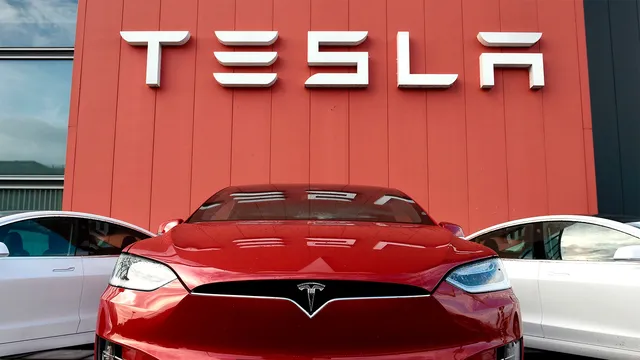
U.S. State Department cancels $400 million armored vehicle deal with Tesla
2025-02-14 08:00- The U.S. State Department intended to award a significant contract to Tesla for armored vehicles but later removed the listing from its procurement document.
- Concerns about conflicts of interest arose due to Elon Musk's connection with the Trump administration and various companies he owns.
- The procurement forecast now refers to 'armored electric vehicles' without naming a specific manufacturer, leading to questions regarding transparency and the bidding process.
Express your sentiment!
Insights
In February 2025, reports emerged that the U.S. State Department initially planned to award a $400 million contract for armored vehicles to Elon Musk's company, Tesla. This deal, which was included in a procurement document, indicated the government's intent to purchase electric vehicles, specifically naming Tesla alongside other manufacturers. However, just weeks before the supposed award, Tesla's name was removed from the procurement list. The item had appeared in the December version of the procurement document, which indicated plans for spending over five years on armored Tesla vehicles but was suddenly scrubbed from the list. This unexpected withdrawal of Tesla from the procurement forecast occurred amidst rising scrutiny of Musk due to potential conflicts of interest related to his various roles within the Trump administration and his ownership of multiple companies. Concerns were raised regarding transparency and ethical implications, leading to the adjustment of the procurement document to reference only 'armored electric vehicles' without specifying any manufacturers. White House Press Secretary Karoline Leavitt mentioned that steps were being taken to avoid conflicts of interest, though she did not elaborate on specific measures. Furthermore, Musk himself publicly conveyed skepticism about the deal, stating on social media that he had not been informed of any intention to award Tesla the $400 million contract, suggesting a backdrop of uncertainty and confusion surrounding the potential contract.
Contexts
Elon Musk is a prominent figure in technology and business, known for his leadership roles in several high-profile companies such as Tesla, SpaceX, Neuralink, and The Boring Company. These companies are at the forefront of various industries, including electric vehicles, space exploration, neurotechnology, and infrastructure development. With the rapid growth of these enterprises, concerns have arisen regarding potential conflicts of interest, especially as they often intersect in technology and innovation. Musk's influence spans multiple sectors, creating a complex web of affiliations that can lead to questions about regulatory compliance, competitive practices, and ethical considerations in business operations. Tesla has frequently been scrutinized for its practices and its impact on the automotive industry. As Tesla is heavily involved in battery technology, any advancements or setbacks in this area can affect competitors and the overall market. Furthermore, Musk's role as CEO has raised discussions about his dual commitments to Tesla and SpaceX, particularly regarding the development of technologies like reusable rockets, which could have applications beyond aerospace, potentially overlapping with Tesla’s ambitions in supply chain logistics and transportation innovations. As these companies evolve, parallels and synergies between their technologies may intensify, leading to perceptions of favoritism or unfair advantage. Additionally, Musk's pursuit of artificial intelligence through Neuralink has potential implications for both Tesla and SpaceX. The integration of AI into autonomous driving systems could enhance Tesla's competitive edge in the automotive sector, while developments in brain-machine interfaces may offer advanced applications for SpaceX missions. However, the intertwining of these different domains raises ethical questions about data privacy, safety, and the potential monopolization of technology, as Musk’s decisions could disproportionately benefit one company at the expense of another. This dual advantage poses a challenge for regulators attempting to ensure a level playing field in rapidly advancing industries. The Boring Company presents another layer to this discussion, focusing on infrastructure development to alleviate urban congestion. As urban transport projects intersect with Tesla’s market for electric vehicles, the overlap presents an opportunity for integrated solutions. However, the conflict of interest may arise regarding municipal contracts and governmental partnerships, where Musk's role as an influential business leader could influence decisions that affect public policy. The dynamic nature of Musk's enterprises necessitates careful consideration of how these interests align and where they may conflict, ensuring accountability and transparency in his diverse business ventures.